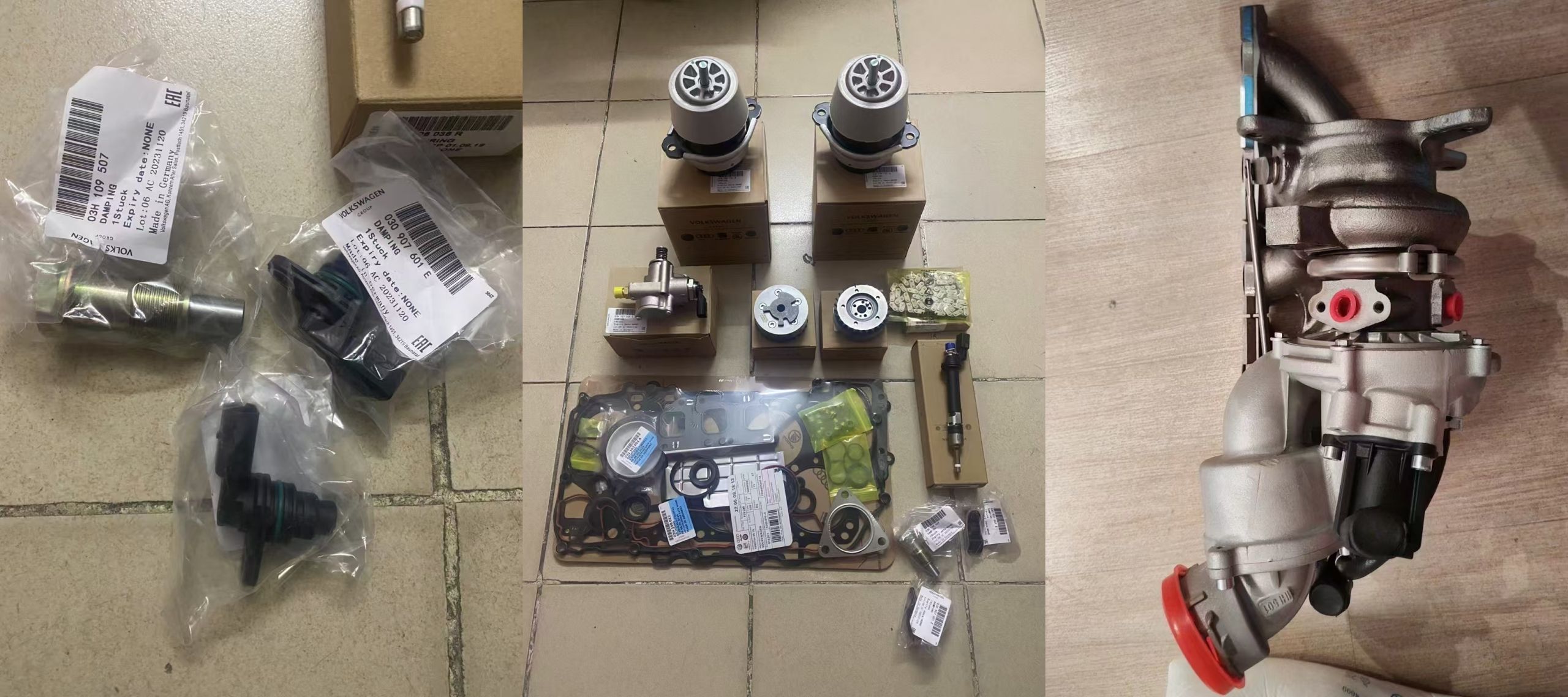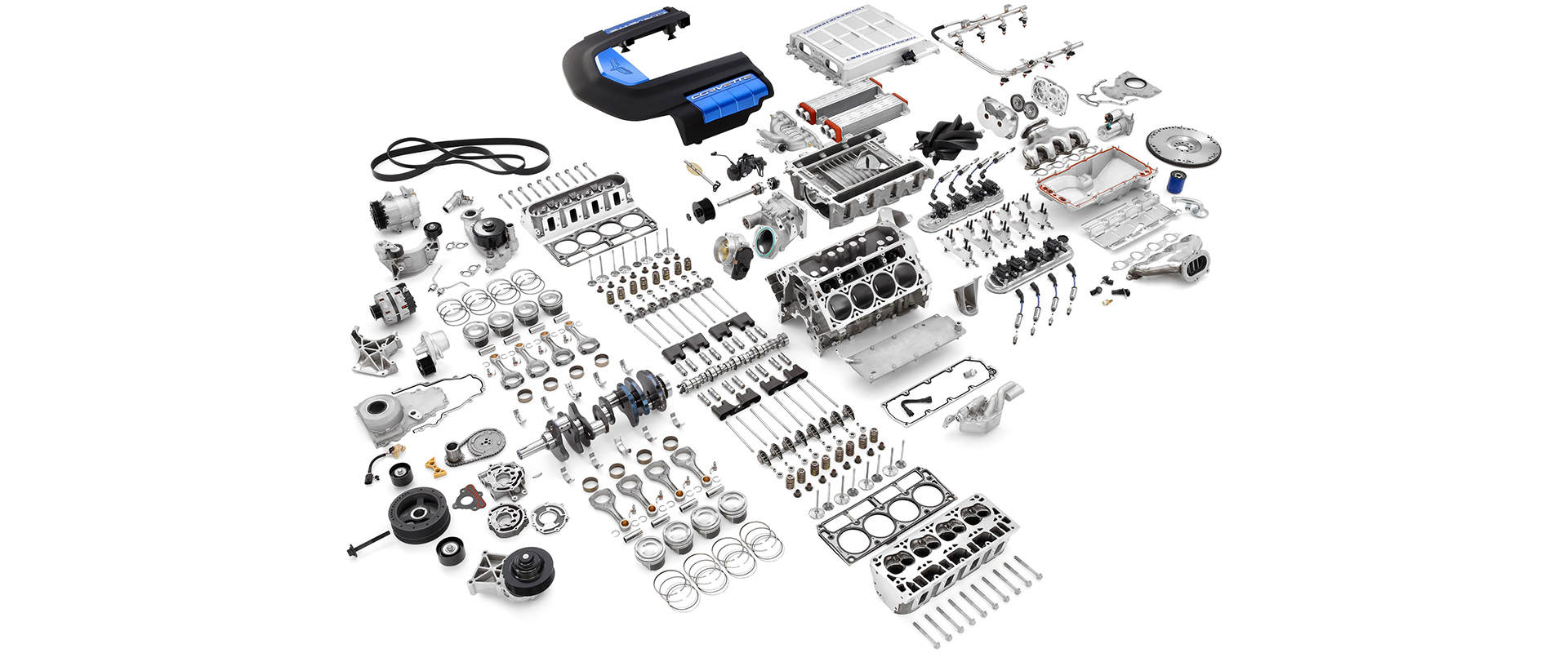How often does a car engine need replacement?
Table of Contents
ToggleThe engine is the heart of a vehicle, directly impacting power output, fuel efficiency, and overall driving experience. However, engine components wear out over time, and carbon deposits accumulate, leading to reduced performance. Many car owners only realize there is a problem when fuel consumption increases, power declines, or the engine struggles to start – but the damage may already be severe by then.
In some cases, engineered issues can be resolved with repairs, such as replacing spark plugs, and fuel injectors, or cleaning carbon deposits. However, if problems occur frequently and repair costs approach or exceed the price of a replacement, installing a new or refurbished engine may be the better choice.
So, how can you tell if your engine is reaching the end of its life? Here are five key warning signs that it may need to be replaced.

Five Warning Signs That Indicate Engine Failure
Power Loss – Is Your Car Struggling to Accelerate?
If you notice that your car struggles to accelerate, even when pressing the gas pedal firmly, it could be a sign of engine wear or excessive carbon buildup in the intake system, leading to inefficient combustion. Common causes include:
- Worn piston rings – Reduced compression results in power loss.
- Carbon buildup in the intake manifold – Restricts airflow and affects combustion efficiency.
- Throttle body deposits – Limits air intake, leading to slow throttle response.
Solution: If carbon buildup is the cause, cleaning the intake system, throttle body, and fuel injectors may help. However, if the problem stems from mechanical wear, engine replacement might be necessary.
Increased Fuel Consumption – Is Your Car Using More Gas?
If your vehicle’s fuel consumption has increased by 20-30% without changes in driving habits, it may indicate engine inefficiency and incomplete fuel combustion. Possible reasons include:
- Clogged fuel injectors – Poor fuel atomization leads to inefficient combustion.
- Carbon buildup in cylinders – Affects combustion chamber performance.
- Faulty oxygen sensors – Incorrect ECU readings lead to excessive fuel injection.
Solution: Regularly cleaning fuel injectors and replacing the air filter can help. However, if excessive fuel consumption persists due to engine wear, replacing the engine may be the most cost-effective solution.
Unusual Engine Noise and Rough Idling
A healthy engine should run smoothly and quietly. If you hear knocking, metal grinding or experience noticeable vibrations at idle, potential causes include:
- Worn connecting rod bearings or crankshaft – Produces metallic knocking sounds.
- Abnormal valve clearance – Causes “ticking” or knocking noises.
- Low oil pressure – This leads to insufficient lubrication and increased friction.
Solution: Changing the oil and checking the lubrication system might help. However, if internal components are severely damaged, replacing the engine is the best option.
Abnormal Exhaust Smoke – A Sign of Internal Engine Damage?
Observing exhaust smoke color can reveal underlying engine issues:
- Blue smoke – Indicates oil burning, possibly due to worn piston rings or valve seals.
- Black smoke – Suggests incomplete fuel combustion, possibly due to clogged fuel injectors or a dirty air filter.
- White smoke – If it persists after startup, it could indicate a coolant leak and potential head gasket failure.
Solution: Minor issues can be fixed by replacing worn seals or cleaning fuel injectors. However, persistent smoke may signal severe internal damage, requiring an engine replacement.
Oil, Coolant, or Air Leaks – Engine Seals Failing?
If you notice oil puddles under your car, excessive coolant consumption, or air leaks in the intake system, it may be due to worn gaskets, aging seals, or even a cracked engine block. These leaks can lead to overheating, lubrication failure, and accelerated wear.
Solution: Replacing seals or fixing cracks may help in some cases. However, if the leaks are severe, the best solution is to replace the engine.

Repair or Replace? Which Is More Cost-Effective?
If your engine experiences frequent failures and the cost of repairs is high, replacing the engine can be more economical. Benefits of engine replacement include:
- Restoring factory performance – Lower fuel consumption and better driving experience.
- Reducing future repair costs – Avoid constant repairs and breakdowns.
- Increasing resale value – Ideal for used car restoration.
Choosing the Right Engine for Replacement
When replacing an engine, selecting the appropriate type is crucial:
- New Complete Engine (Long Block): Best for severely damaged or high-performance vehicles, offering maximum reliability.
- Short Block Engine: Replaces only the core components, balancing cost and performance.
- Rebuilt/Refurbished Engine: A cost-effective option but requires strict quality control.
We supply high-quality engines and parts for BMW, Mercedes-Benz, Volkswagen, Toyota, Honda, and other brands. Our products ensure optimal performance, and we support bulk orders for individuals, distributors, and repair shops.
Need an engine replacement or spare parts? Contact us for the best deals!

Conclusion
If your car exhibits symptoms such as power loss, increased fuel consumption, unusual noises, abnormal exhaust smoke, or leaks, your engine may be nearing the end of its lifespan. Depending on the severity of the issue, you can choose to repair or replace the engine.
A high-quality engine replacement—whether a complete engine, short block, or refurbished unit—can restore your vehicle’s performance and reliability.
Yeahengine
Yeahengine sells engine long blocks as well as genuine engine parts including spark plugs. We have more than 10 years of industry experience, global logistics, and single parts can be shipped, please contact us and get a quote.



1 Comments
Yep. Not replacing it over time will waste more of my gas and create more glitches. Right on, I’ll check my engine too.